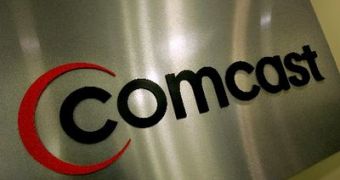BitTorrent is probably the most popular file sharing technology nowadays and this thing seems to bother some ISPs that are likely to do anything possible to limit the BitTorrent use. For instance, it was reported that Comcast limited the BitTorrent downloads because they required too much bandwidth which obviously affected the browsing experience of other consumers who are using the web for other purposes. As expected, this move annoyed BitTorrent because the company struggles to promote its business and become more active on a market full of numerous peer-to-peer applications.
"ISPs like Comcast want to throw the baby out with the bathwater," says Ashwin Navin, president and cofounder of BitTorrent according to PC World.
But Vuze, another angry company, filed a petition and sent it to the Federal Communication Commission to request the organization to block ISPs from limiting the access to BitTorrent downloads. Vuze is a company that signs deals with other firms on the web and distributes their content through the BitTorrent technologies. Imagine that a potential limitation of the downloads would also mean that its business could go down, as some consumers might look for other alternatives that would provide higher speeds.
"Now is the time to embrace the sea changes in entertainment consumption that are occurring. The rapid convergence of the entertainment and Internet industries has enabled the delivery of high-quality video, and these throttling tactics represent growing pains as ISPs resist inevitable change", said Gilles BianRosa, CEO of Vuze. "We hope our Petition will trigger a public discussion, but we also need the FCC to act. The industry needs transparency into what ISPs are doing and an environment that fosters innovation in online entertainment."
"Such an approach will benefit ISPs. Rather than resisting changes in Internet usage with counterproductive and arbitrary traffic throttling, we need to work together with the FCC to create a solution that ISPs, technology providers, consumers, content providers, and advertisers can all support."

 14 DAY TRIAL //
14 DAY TRIAL //